Finding My Grandmother’s Ma’amoul Cookie in Brooklyn: A Story of Palestinian Survival
Complete erasure will never be possible – because Palestinians endure. And we will remember. Not just in body, but in memory, in story, in taste.
On a brisk fall Saturday morning at our local farmers market in Brooklyn, mere weeks after my family and I had settled into our new home, I found it. A cookie.
Not just any cookie, but a ma’amoul. Versions of these delicate, date-filled pastries from the Middle East can be found in American bakeries, but this ma’amoul was different. It looked exactly like my Teta’s, my Palestinian grandmother’s: small, compact, sprinkled with powdered sugar and perfect imprints pressed into the dough.
I liked to fancy myself a ma’amoul connoisseur, having devoured so many as a child. I was always sneaking one more when no one was looking, and I had no hesitation dismissing any imitation with precise criticism whenever it fell short of hers.
There were many reasons for our move to the East Coast from Los Angeles. But what pushed us to act suddenly and decisively was our children.
After October 7, it began with a barrage of words on social media and school pickups. Not at us, but around us, and then directly at them. I got a call from the school nurse one afternoon: my 8-year-old daughter had thrown up. When I arrived, she told me that a group of kids had called me and my mother “terrorists.” My 6-year-old son came home confused, asking why his friends kept wondering why he wasn’t “on the side of the good guys.” These weren’t just idle questions. They came from classmates who had clearly absorbed the conversations unfolding in their homes – conversations in which lines had already been drawn. My children were suddenly expected to justify their identities, to declare allegiance.
Then came my son’s seventh birthday party a few months later. As the kids laughed and played, I looked up to find myself encircled by a group of mothers peppering me with questions about where my parents were born or how I chose my kids’ names (both are Arabic). Looking around for my husband, I wasn’t interested in turning my sons’ party into a debate. And when I glanced across the yard, I saw another mother had pulled my daughter aside, smiling as she told her, “Your names are Hebrew.”
That night, my daughter asked me, point-blank: “Where was Teta born? Are we Israeli? Why can’t we say who we are? Why are people saying there is no such thing as a Palestinian?”
She had always been gregarious, effortlessly at ease with others. But now she, too, was shrinking in the face of suspicion. And for the first time, they both began demanding answers about who they were allowed to be.
We realized then that the silence we had thought might protect them had only made them more vulnerable. They needed us to speak, to give them a place where they didn’t have to erase themselves just to belong.
And around us, it wasn’t just children absorbing the fear. Our neighborhood bookstore – nestled in an open-air mall that had been a fixture of my childhood – was forced to shut down for a day after it carried a book that included a historical overview of Hamas and its rise. A group of mothers stormed in, ambushed the young clerk (who identifies as Jewish), filmed themselves mocking and taunting the clerk, and then proudly posted the footage online. The store was forced to close temporarily, and so what did the mothers do? They hoisted an Israeli flag on the window and declared it “a Jewish neighborhood.”
There was no room left for quiet, for code-switching, or for pretending. Not for us. And certainly not for our kids.
When I was their age, in the same community, the hostility wasn’t overt – it was present, but in subtler ways. I learned to sense it in glances, in awkward pauses, in the questions that never quite sounded like questions. My American peers had been taught to fear people like my mother. People like me.
I wasn’t taught to shrink, but I taught myself. As a third-culture kid who wanted to fit in, I learned to soften my identity to make others feel comfortable. But inside our home, there was no such thing as neutrality. My father, a Christian Armenian, was born and raised in Beirut by a family who had fled the Armenian Genocide – still denied by some, but a truth etched into our family’s history. My mother, a Muslim Palestinian, was born into the Nakba of 1948, forcibly displaced from her village along with over 700,000 other Palestinians. When they met at the American University of Beirut, civil war broke out, and they were forced to flee once again.
War and exile weren’t events in our family history; they were its atmosphere. I grew up steeped in the stories.
One summer, I’d be sitting at my Teta’s table in Amman, Jordan, shutters drawn against the heat, listening to my aunties and mom conjure memories of their home in Palestine – a longing and pain I registered but couldn’t quite grasp.
Another summer, I might be with my cousins in Beirut, Lebanon, where their living rooms buzzed with men slapping down backgammon pieces and debating politics. Cigarette smoke hung in the air.
I never thought it was strange that none of my relatives lived in the same country. Scattered across Jordan, Lebanon, and the Gulf – I understood instinctively that exile wasn’t a singular event. It was a condition.
And when we returned to the United States, I always played my part. I tucked away the grief I didn’t yet recognize as grief and became the American girl who fit in. I laughed at the right jokes; I learned how to mold myself to be liked. And if I were to be honest, I enjoyed being a people pleaser a little too much. I buried the truth – that my parents carried trauma like scar tissue – and did what children do best: I adapted.
My children didn’t have that context. They didn’t know how to read between the lines or preempt the assumptions. Their instincts weren’t shaped by fear or the need to blend in. When the world shifted around them, they didn’t know how to react. They looked to me for cues, but I had spent my life learning to go quiet. And for the first time, I could feel their disappointment in me. Everything changes when you are in charge of shaping another person’s worldview. Raising them in a hostile environment was something I did not want to do. Preserving their sense of humanity and ensuring they grew up in a community where they could be fully seen became my priority. I had the privilege and agency that my immigrant parents didn’t. I was determined to use it.
The Recipe
At the farmer’s market, I bought the ma’amoul. I broke off a piece and took a bite, and for a moment, I was no longer in Brooklyn. I was in my childhood kitchen, my fingers sticky with date filling. It tasted just like my Teta’s cookie. In fact, it tasted exactly like my Teta’s cookie.
The baker, Zeena, was busy with customers, so I struck up a conversation with her mother, who stood quietly at the back of the stall. She was also Palestinian, and when I mentioned my mother, she asked for her maiden name.
Then she said something that made my breath catch in my throat:
“We’re related.”
I stood there, surrounded by the hum of the market, stunned. The words hung in the air, impossible to grasp all at once. I smiled, nodded, said something polite, but I couldn’t fully absorb it.
Later, at home, I FaceTimed my mother. When I told her, she lit up. Through all the sorrow my grandmother had endured, it was her grandmother who had been the source of her deepest joy. Discovering that Zeena came from that same branch of our family – one that had brought so much happiness during so much loss – stayed with me. This wasn’t just a cookie. It was a living thread to a past that might have disappeared completely, if not for a single conversation.
To understand the significance of that ma’amoul, you have to understand my grandmother’s story, and my mother’s too.
My Teta was displaced twice. The first time was in 1948, during the Nakba. She fled her village, Qaqun, under heavy bombardment. As the village, a place nestled in the rolling hills of Palestine and known for its fertile land and diverse agricultural production, was overtaken and occupied, my Teta needed to get to the hospital in Nablus to deliver her first child, my mother, where my grandfather was the head doctor. Amidst the threat of violence, she made it to the bustling city, where she could safely deliver her. But my Teta never returned to the only home she had known. That night, it was gone. Their land, their home, their village – erased.
They rebuilt in another town, Tulkarm, a beautiful place not far from the Mediterranean, which benefits commercially from its central location.
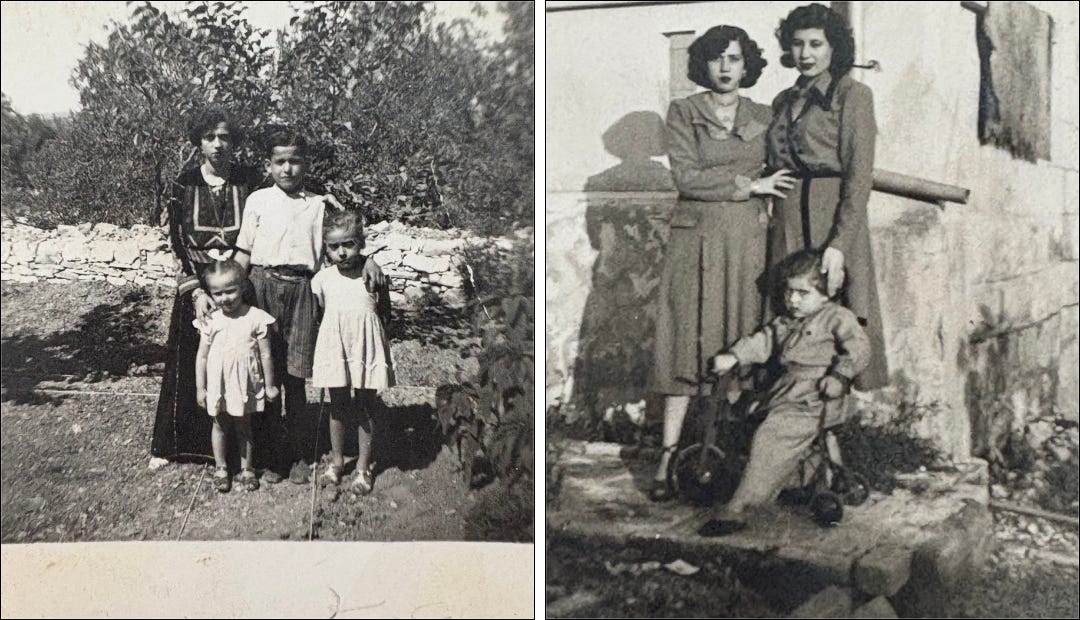
My grandfather, well-educated and well-connected, believed what so many Palestinians came to believe: that education was the last defense. He sent all three of his daughters to boarding school, first in Ramallah, then to a German-run school in Jerusalem. My mother was just 5 years old when she was sent off in 1953. The opportunities were real. But the cost was steep: separation from her family (and, in many ways, her culture) at such a young age, a price she would carry for the rest of her life.
Then came 1967 and what is referred to as the Six-Day War. My mother was already studying at the American University of Beirut when it began. Her younger sisters were placed in a car by their boarding school administration and sent home to Tulkarm. Along the way, the driver was forced to stop on the roadside to shield my young aunts as bullets tore past them. They eventually reached my Teta’s house, where my great-grandmother was also living at the time. That night, Israeli soldiers came to the door and forced all of them to leave at gunpoint.
At least four generations of women have been making the same ma’amoul cookies … A recipe passed down through generations, shaped by displacement and survival.
The journey that followed was brutal. Soldiers tossed candy at the children’s feet – a grotesque spectacle meant to humiliate. They walked 14 miles to Nablus, to my great-grandmother’s family home (Zeena’s family home).
It is from this story that I learned my Teta descends from the same maternal line as Zeena’s grandmother. At least four generations of women have been making the same ma’amoul cookies: the ones I grew up eating, the ones Zeena learned to make from her Teta, and the very same I bit into at the farmer’s market just a year ago. A recipe passed down through generations, shaped by displacement and survival.
More Than a Sweet Surprise
I’ve been writing this essay for almost a year. I’d stop and restart it every time something new appeared in the news – another massacre, another statistic to update. I kept wondering: what will resonate more? Stating that this is the largest cohort of child amputees in history? That every person in Gaza is under threat of starvation? Or that children are being deliberately shot in the head, spine, and genitals?
It’s nearly impossible to process what we’re witnessing in real time. But perhaps the most jarring part is the hyper-normalization of a live genocide, combined with the gaslighting from corporate media, politicians, and peers. Add to that: the scroll. A photo of friends on a beach, followed by an image of a child’s insides.
Fatima Bhutto captured this moment with haunting precision in a recent Zeteo piece, underscoring that more babies will have starved to death in Gaza by the time you even read her essay... “But we will remember,” she asserts.
Watching it all unfold has unearthed a longing for home I can’t quite name. Not a physical place, but the warmth of my Teta’s cooking, the cadence of her voice, the love and joy our culture has always offered.
I used to love watching her knead dough, then dust each cookie with powdered sugar. She always made sure I got my share, sneaking extras to me even when my mother told her to stop. Her eyes were always heavy with sadness – something her American granddaughter couldn’t understand at the time.
But now I do. As images from Gaza flood my phone, I can’t look away. As a Palestinian mother, daughter, and granddaughter, the grief is everywhere. It haunts my every breath. It engulfs my daily life. And then come the out-of-body moments – like when I see photos of my daughter at summer camp, running free among trees and laughter, while other children – her bloodline – are being starved, mutilated, and erased.
I spent much of my life shaped by Western liberalism and the illusion of its moral superiority. It was there in my graduate program, in my career in foreign policy and media. But these past two years have shattered whatever myths I once clung to. The disillusionment had been building – but this was different. This was a collapse.
Complete erasure will never be possible – because we endure. And we will remember. Not just in body, but in memory, in story, in taste.
Death and destruction weren’t distant stories – they were, and continue to be, livestreamed onto our phones. American tax dollars fund the planes and bombs massacring my people. Colleagues I once worked alongside – of all political stripes – calling the shots at the highest levels of government, deciding the fate of people who could have been my family.
The joy in finding a cookie at a Brooklyn farmers market, especially as Palestinians in Gaza struggle to find flour, or rice, or water, may seem trivial. But when the world is determined to erase your identity, when your people are being ethnically cleansed, finding your Teta's cookie isn’t just a sweet surprise. It is proof of survival.
The unrelenting dehumanization and collective punishment have made Palestinians like me more united than ever. Complete erasure will never be possible – because we endure. And we will remember. Not just in body, but in memory, in story, in taste.
Sometimes, survival looks like biting into ma’amoul at a farmers market in Brooklyn…and finding your grandmother again.
Nadine Apelian Dobbs is a policy, strategic communications, and public affairs adviser. She has held leadership positions in foreign policy and social change organizations.
The views expressed in this article are the author’s own and do not necessarily reflect those of Zeteo
Check out more from Zeteo:



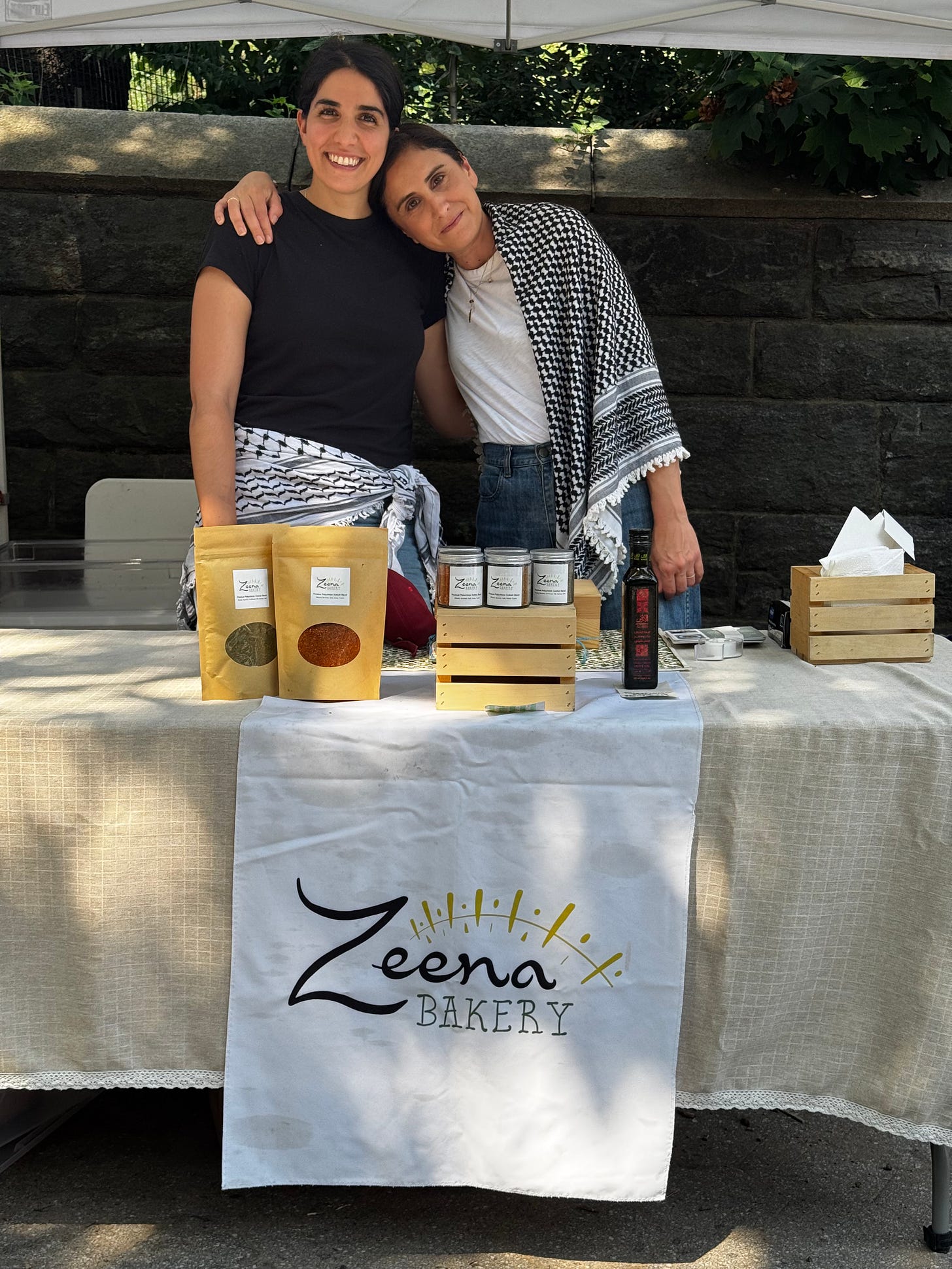
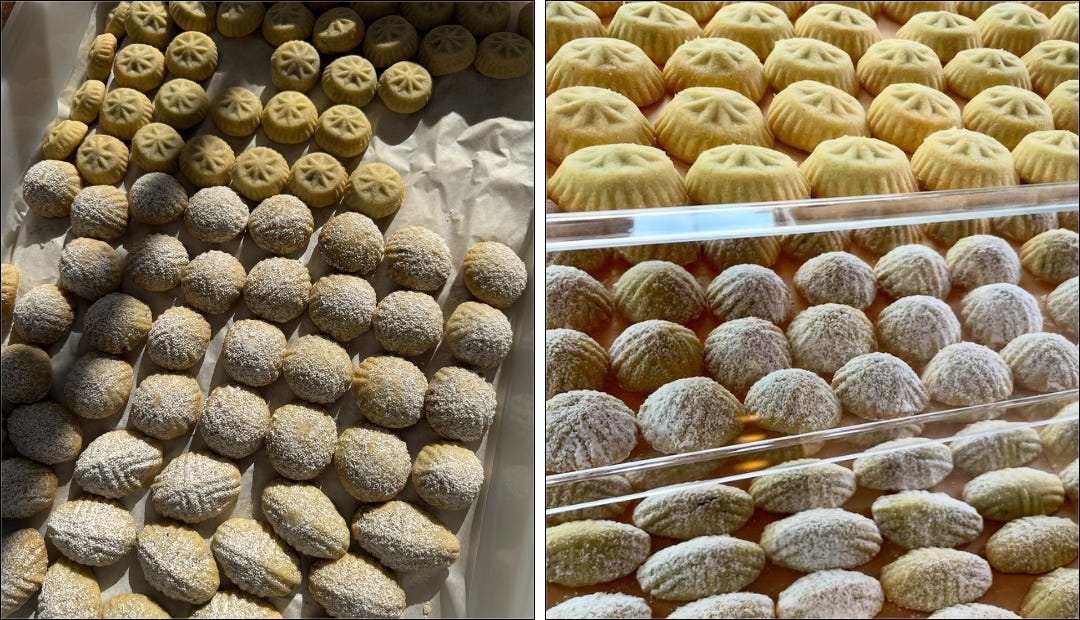
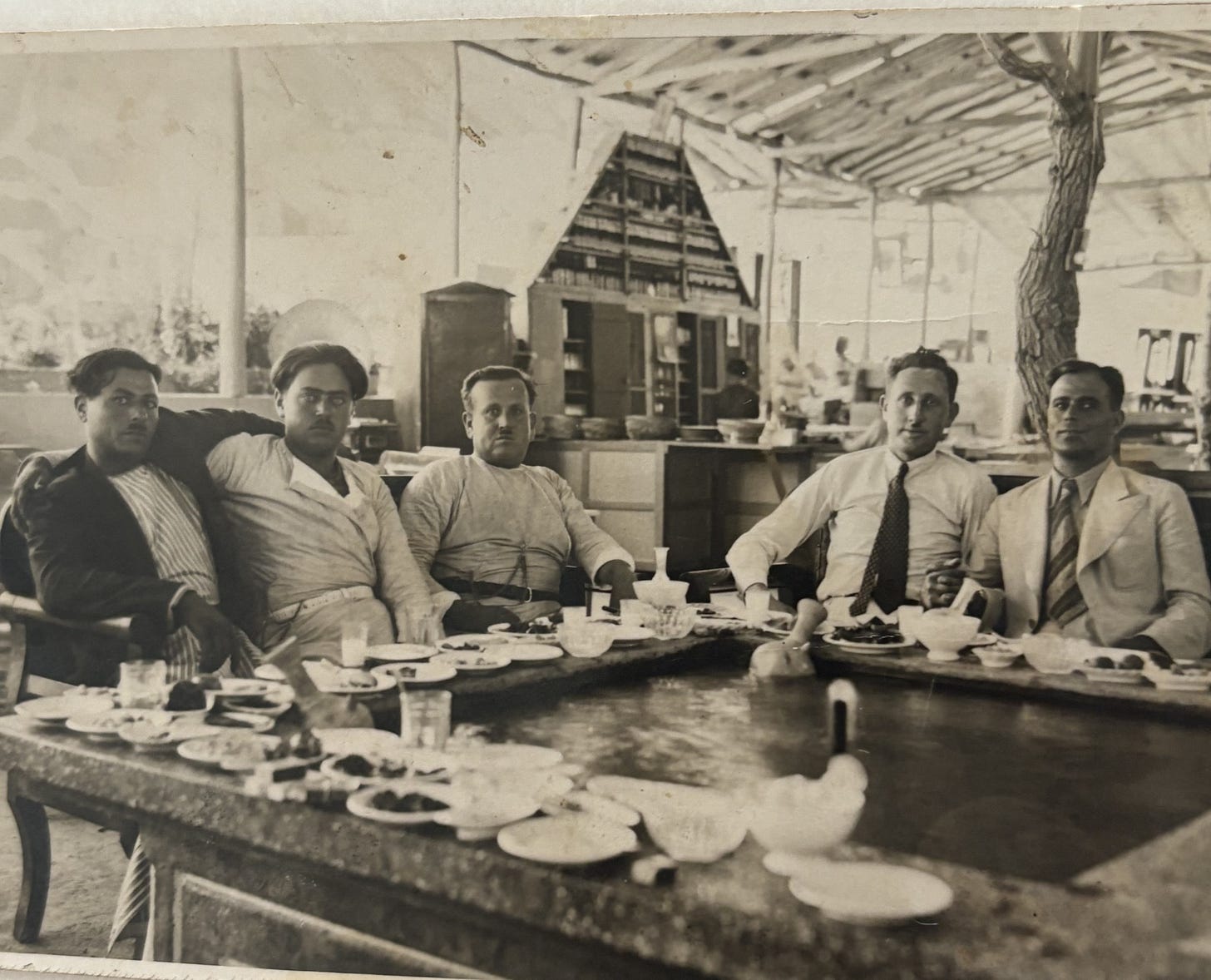
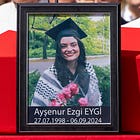

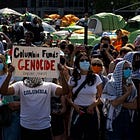
Nadine - what a poignant story. And it made me long for one of my mother’s ma’amoul as well. Yes we will endure. And like you, I’ve kept quiet about my heritage for far too long. Not anymore. 🇵🇸
"... because Palestinians endure." So much truth and dignity in this statement, a lesson we all should have learned before this time is history when the world marches beyond the pale. Thank-you❤️